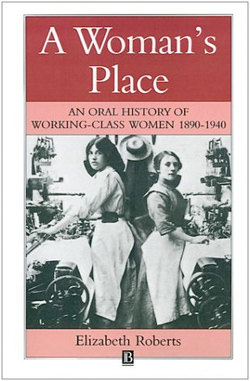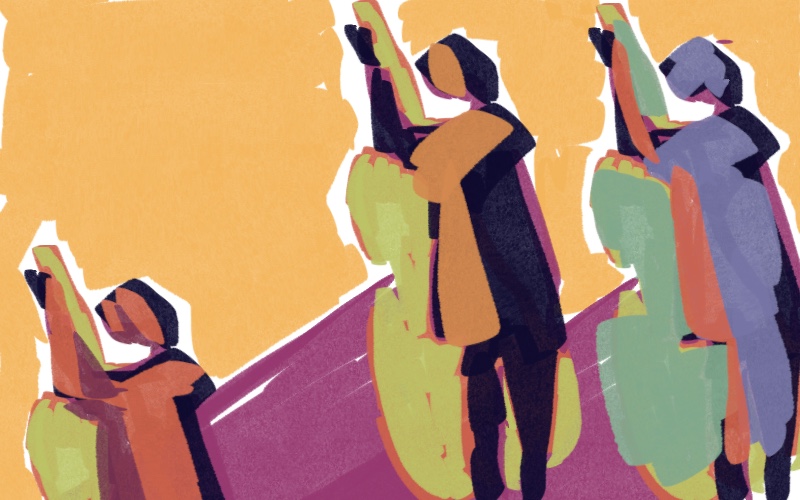Bodies and Souls, Sophisticated Ladies, and Plucked Strings

I think we all have moments where we wonder what it was like to be our favorite musicians, hearing what they heard, thinking their thoughts, seeing what played out before their eyes, feeling the full embrace of those “aha occasions” when the course of music history was forever altered. This is something I do quite a bit with Duke Ellington, trying to insert myself behind his piano in my imagination as he watched, for instance, Paul Gonsalves lean back into chorus upon chorus at Newport in 1956.
Ellington probably would have never gotten to that point, to have that moment, were it not for the man whom I believe was the most important band member he ever had, short — that is, tragically truncated — as that association was. Last autumn, on October 5, Chattanooga-born bassist Jimmy Blanton marked his centennial. A little more than 20 years later — or 80 years ago now — he joined the one major unit he would ever belong to, that being Duke Ellington’s already-formidable beast of an orchestra.
The Count Basie band brought the stomp and vigor of a form of swing that thundered into forms of early rock and roll and soul-affirming rhythm and blues, and while Ellington’s unit could rock the heavens as well, you had the sense, listening to their pre-Blanton sides, that they wished to be more, or that the Duke did, anyway. And what was that additional element? The Duke sought to turn his sophisticated, felicitous band into promulgators of populist chamber music, as befitting the bedchambers of royalty who had delighted in Bach-ian fugues extemporized on the harpsichord ages ago, as a proletariat wanting to sock away some beers and cut up a parquet floor into as many strips of wood as possible.
Blanton was the man who freed the Ellington sound, who made all future sounds, it seemed, attainable. I’ll venture that no one in jazz history has played an instrument better than Blanton played the bass, but I almost hesitate to term what he did bass playing. When you listen to someone like Robert Johnson on guitar, it takes some settling in on your part, because you need to suspend belief, do away with a lot of what you already knew, and be open that someone is redrafting and rearranging the principles of how sound can be ordered, sourced, constructed. Johnson plays lead and rhythm at once, and yet he only has two hands, but surely there are always at least four at work, yes? But no, just the two. It takes a form of Socratic wisdom to accept genius like this, and it as though such a player is coaching us up, we might say, as to what one human can do that another has not done previously.

So it went with Blanton the bassist. Bassists kept the time, kept everyone in the band minding Ps and Qs; they both represented and augmented order. You might say they were the managing editors of jazz. This was not Blanton, and I like to imagine what went through Ellington’s head when he first heard him. He must have seen this player as a form of an answer, and a portal, the gateway to a sound his brain knew and heard, internally, but a sound yet to kiss his own ears, let alone the ears of scores of people.
The Basie band had the brawn and volume, it had had Lester Young and Herschel Evans as its Hank Aaron and Willie Mays-types, but it was not the All-Star team juggernaut the Ellington orchestra was, and still, Blanton emerged instantly as the facilitator who was going to make everyone better, without a seasoned listener doubting who was the best.
His bass becomes the unit’s lead instrument, an insane notion given everything the bass had been in jazz up until that point. He played with such speed at points that when we hear some of his runs, some of his fills, some of his dashes between other players’ solos, we can’t help but imagine what his hands must have looked like and if we would be able to make out individual fingers or else just cloudy swirls before our eyes as strings throbbed and danced. He was the band’s rocket shit to the beyond, but he was also its emplacement, the fastening point for everyone else. He would be dead, aged 23, by the summer of 1942, felled by tuberculosis.
Jazz, as even the most recently arrived neophyte to the medium, is aware, is comprised of star-crossed musicians and their gut-punch stories; the greater the “what if” quotient, the harder the fist to that emotional solar plexus that leaves us gasping for our wind as we try to formulate the phrase, “Why could there not be more?” Ellington always struck me as one of those ageless men. He probably had characteristics at 14 that he had at 46, an artistic figure standing outside the space-time continuum. He must have recognized Blanton as a kindred soul in that way, for the Blanton who was a youth in his early 20s might as well have been a jazz Yoda.
This is why I think Ellington cut him from the herd of his orchestra for a bit. Maybe, too, he had a presentiment that Blanton would not be long for his band, if not the world; certain talents are cometary in that they can’t stay with us too long, they have other horizons to light up in their journey. The duet recordings that Ellington made with Blanton—that is, piano and bass pieces—represent the summit of the bass instrument. And what a view we get from atop these precipices. We have all traveled to altitudinous points where we can see half a dozen states at once, and this is the musical version of that, although the placard by the guardrail might as well read “infinite states viewable on a clear day.”
1939’s “Blues” and “Plucked Again” — ah, what a jocose, sad mondegreen we might hear that second title as — were the first bass-piano duets ever released. Ellington’s conversational chords—like polite, borderline festal hosts— walk us into this room, where we are what I think of as tendril-ized by Blanton’s bass. It starts at our pant legs, moves up to encircle our hips, threads itself around our shoulders, soliciting our comfort, pulling out a chair in which we might repose, inquiring as to how we have been when we have been apart, something we never wish to be again. Ellington, by this point, is playing as if to say, “Nah, you do it, buddy, you tell the story, you’re so much better at it.” The bass demurs by way of invitation, coaxing the piano into the pitter and patter of dialogue, old fires reborn, new tinder bundles established for complementary hearth glows.
“Plucked Again” commences with lower piano notes; this is bluesier. Ellington’s opening figure appears to set up a vocal — you expect a singer to emerge with her first verse, but instead, that singer is Blanton’s bass. If ever an instrument sounded like Billie Holiday, it is this bass here. We are talking early Billie when melody seemed to exist to be worked upon a jazz genius’s loom and spun out into endlessly new arrays and fabrics.
Ellington, for his part, is stoked, as you can hear with his glissando glazings like he can’t keep his joy to himself as Blanton’s bass sets you to dancing. When have you ever heard a bass — I’m not talking some thudding, one-note techno-beat you pump your hips to — that gets you out of your chair and seeing if you have enough room to take a twirl or two around it? When Blanton plucks a note, it sounds like he’s plucking a string fastened across the expanse of some deep-bottomed canyon, only with velour lining the canyon walls and draped over the river at its lowest point.
The duo stayed with the duet game during the rest of their time together, which is to say, the rest of Blanton’s life as a music-maker. Fruits of the assignation: “Pitter Panther Patter,” in which two lone instruments swing the bejeezus out of an uptempo riff, including passages where Blanton’s bass becomes the mimetic form of Ellington’s piano. This is a game of chicken, played by friends wishing to egg each other on because they know delight, rather than disappointment, can be the only outcome. Ellington forks, sinks, splits, curves his various pianistic pitches, and no matter what he throws, Blanton is ready, without a skipped beat or the barest elision of a note, to stand in and drive the ball back through the box. He plays walking bass figures while sending off fresh detachments of melody as if this were a bass-based version of musical omnipresence.
Simply, he is staggering and staggers our expectations, until we think like Ellington must-have, “Okay, this is the new bass order, I knew nothing before.” Blanton’s bow work on “Sophisticated Lady” is a tone I’ve not heard replicated anywhere else. How often can we say that of anything we have ever encountered? This is the bass, but it is not the bass, the sound of pockets of oxygen spontaneously combusting in rhythmic fractals, a Pollock drip canvas if a Pollock drip canvas could sing.
There is a sportive spryness to the Ellington-Blanton duets, but they could cool it down, and if this series has a representative apothegm, that would be “Body and Soul,” a familiar title — and obviously refrain — that in this particular casting seems to pull max meaning from both words, especially with the physicality of this playing, the reality that Blanton the mortal being would not be with the Duke much longer, and the abiding spirit of this music that existed then and exists now.
The pattern with these recordings, with Ellington starting them, is kept in place, but when Blanton enters with his bow, we hear jazz’s counterpoint, almost like a line of descant, to Donne’s “A Valediction Forbidding Mourning” — a threnody, perhaps, but one so lissome, so alive, that the music inverts death, which is perhaps an apothegm itself for art’s greatest task and its greatest reward.
At one point, Ellington’s piano sounds like it has a catch in its throat, given what Blanton has just played, and it steps aside to return the spotlight to the man of the match, who takes us home with a Keatsian lullaby. We ride the floating carpet, the cloud, the gently funneling wind, and I think, “Is this an instrument, sir, or do you command elements?” The asking of a question can be its own answer, and when I hear these Ellington-Blanton duets, I have mine. •
No comments:
Post a Comment